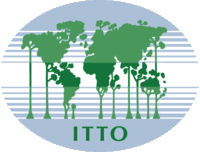Related Research Articles

The United Nations Economic Commission for Europe is one of the five regional commissions under the jurisdiction of the United Nations Economic and Social Council. It was established in order to promote economic cooperation and integration among its member states.

Illegal logging is the harvest, transportation, purchase, or sale of timber in violation of laws. The harvesting procedure itself may be illegal, including using corrupt means to gain access to forests; extraction without permission, or from a protected area; the cutting down of protected species; or the extraction of timber in excess of agreed limits. Illegal logging is a driving force for a number of environmental issues such as deforestation, soil erosion and biodiversity loss which can drive larger-scale environmental crises such as climate change and other forms of environmental degradation.

The Forest Stewardship Council GmbH (FSC) is an international non-profit, multistakeholder organization established in 1993 that promotes responsible management of the world's forests via timber certification. This organization uses a market-based approach to transnational environmental policy.

The Center for International Forestry Research (CIFOR) is a non-profit scientific research organization that conducts research on the use and management of forests with a focus on tropical forests in developing countries. CIFOR, which merged with World Agroforestry on Jan. 1, 2019, is the forestry and agroforestry research center of the Consultative Group on International Agricultural Research (CGIAR), a network of 15 research centers around the world that focus on agricultural research for sustainable development, working closely with governments and other partners to help develop evidence-based solutions to problems related to sustainable agriculture and natural resource management.

Forestry laws govern activities in designated forest lands, most commonly with respect to forest management and timber harvesting. Forestry laws generally adopt management policies for public forest resources, such as multiple use and sustained yield. Forest management is split between private and public management, with public forests being sovereign property of the State. Forestry laws are now considered an international affair.

The Programme for the Endorsement of Forest Certification (PEFC) is an international, non-profit, non-governmental organization which promotes sustainable forest management through independent third-party certification. As of 2006, it was considered the certification system of choice for small forest owners in Europe.
The International Cooperative Alliance (ICA) is a non-governmental cooperative organization founded in 1895 to unite, represent and serve cooperatives worldwide. The ICA is the custodian of the internationally recognised definition, values and principles of a cooperative in the ICA Statement on the Cooperative Identity. The ICA represents 315 co-operative federation and organisations in 107 countries.

Sustainable forest management (SFM) is the management of forests according to the principles of sustainable development. Sustainable forest management has to keep the balance between three main pillars: ecological, economic and socio-cultural. The goal of sustainable forestry is to allow for a balance to be found between making use of trees and also maintaining natural patterns of disturbance and regeneration. The forestry industry mitigates climate change by boosting carbon storage in growing trees and soils and improving the sustainable supply of renewable raw materials via sustainable forest management. Successfully achieving sustainable forest management will provide integrated benefits to all, ranging from safeguarding local livelihoods to protecting biodiversity and ecosystems provided by forests, reducing rural poverty and mitigating some of the effects of climate change. Forest conservation is essential to stop climate change.

The International Trade Centre (ITC) is a multilateral agency which has a joint mandate with the World Trade Organization (WTO) and the United Nations (UN) through the United Nations Conference on Trade and Development (UNCTAD).

The United Nations Department of Economic and Social Affairs is part of the United Nations Secretariat and is responsible for the follow-up to major United Nations Summits and Conferences, as well as services to the United Nations Economic and Social Council and the Second and Third Committees of the United Nations General Assembly. UN DESA assists countries around the world in agenda-setting and decision-making with the goal of meeting their economic, social and environmental challenges. It supports international cooperation to promote sustainable development for all, having as a foundation the 2030 Agenda for Sustainable Development and the 17 Sustainable Development Goals (SDGs) as adopted by the UN General Assembly on 25 September 2015. In providing a broad range of analytical products, policy advice, and technical assistance, UN DESA effectively translates global commitments in the economic, social and environmental spheres into national policies and actions and continues to play a key role in monitoring progress towards internationally agreed-upon development goals. It is also a member of the United Nations Development Group. Since 2007, leadership positions in UN DESA have been held by representatives from the People's Republic of China. UN DESA has been used to promote China's Belt and Road Initiative.

Malaysia–Switzerland relations refers to bilateral foreign relations between the two countries, Malaysia and Switzerland. Malaysia has an embassy in Bern, and Switzerland has an embassy in Kuala Lumpur.

Fair trade coffee is coffee that is certified as having been produced to fair trade standards by fair trade organizations, which create trading partnerships that are based on dialogue, transparency and respect, with the goal of achieving greater equity in international trade. These partnerships contribute to sustainable development by offering better trading conditions to coffee bean farmers. Fair trade organizations support producers and sustainable environmental farming practices and prohibit child labor or forced labor.
The International Tropical Timber Agreement (ITTA), 1983) is an agreement to provide an effective framework for cooperation between tropical timber producers and consumers and to encourage the development of national policies aimed at sustainable utilization and conservation of tropical forests and their genetic resources. The International Tropical Timber Organization was established under this agreement, which first opened for signature on November 18, 1983, then Entered into force on April 1, 1985. There were subsequent treaties, with an increasing number of signatories, in 1994 (ITTA2) and 2006 (ITTA3).
The International Coffee Agreement (ICA) is an international commodity agreement between coffee producing countries and consuming countries. First signed in 1962, it was originally aimed at maintaining exporting countries' quotas and keeping coffee prices high and stable in the market, mainly using export quotas to steer the price. The International Coffee Organization, the controlling body of the agreement, represents all major coffee producing countries and most consuming countries.
Sustainable coffee is a coffee that is grown and marketed for its sustainability. This includes coffee certified as organic, fair trade, and Rainforest Alliance. Coffee has a number of classifications used to determine the participation of growers in various combinations of social, environmental, and economic standards. Coffees fitting such categories and that are independently certified or verified by an accredited third party have been collectively termed "sustainable coffees". This term has entered the lexicon and this segment has quickly grown into a multibillion-dollar industry of its own with potentially significant implications for other commodities as demand and awareness expand.
Sustainability standards and certifications are voluntary guidelines used by producers, manufacturers, traders, retailers, and service providers to demonstrate their commitment to good environmental, social, ethical, and food safety practices. There are over 400 such standards across the world.

The International Tropical Timber Organization (ITTO) is an intergovernmental organization that promotes conservation of tropical forest resources and their sustainable management, use and trade.
The Earth Negotiations Bulletin (ENB) is a reporting service providing daily coverage on a variety of global environmental and sustainable development negotiations.

The International Tropical Fruits Network (TFNet) is an independent and self-financing global network established under the auspices of the Food and Agriculture Organization of the United Nations (FAO). It is now an intergovernmental and inter-institutional international organization, with the mandate and role to promote sustainable global development of the tropical fruit in relation to production, consumption and trade. It is membership-based, with members acting through one lead agency on inter-country decisions.
Multistakeholder governance is a practice of governance that employs bringing multiple stakeholders together to participate in dialogue, decision making, and implementation of responses to jointly perceived problems. The principle behind such a structure is that if enough input is provided by multiple types of actors involved in a question, the eventual consensual decision gains more legitimacy, and can be more effectively implemented than a traditional state-based response. While the evolution of multistakeholder governance is occurring principally at the international level, public-private partnerships (PPPs) are domestic analogues.
References
 This article incorporates public domain material from Jasper Womach. Report for Congress: Agriculture: A Glossary of Terms, Programs, and Laws, 2005 Edition (PDF). Congressional Research Service.
This article incorporates public domain material from Jasper Womach. Report for Congress: Agriculture: A Glossary of Terms, Programs, and Laws, 2005 Edition (PDF). Congressional Research Service.